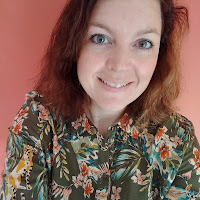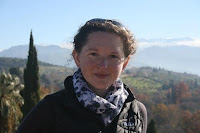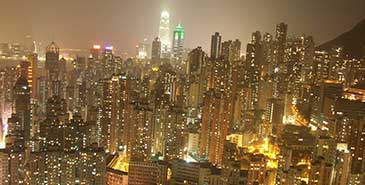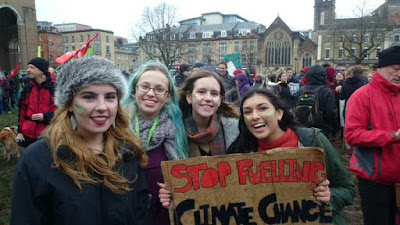 |
| Image credit: Amanda Woodman-Hardy. Copyright. |
Did you know women are more likely than men to be affected by climate change? UN figures indicate that 80% of people displaced by climate change are women. And in light of the recent strikes by children across the world, it is clear that it is the most pressing issue for a lot of children around the world. So then, what role do mothers play in guiding and supporting our children in a changing climate? And what is it like to know the dangers of climate change and bring up a child in an uncertain world?
The guilt
You only have to visit forums like Mumsnet to see that climate change is being discussed quite frequently and with anxiety (for those who care) around how it will affect their children’s futures. As highlighted on the Victoria Derbyshire programme, young women across the world are contemplating whether to have kids at all for fear of how climate change will degrade their children’s lives. In fact a new group called BirthStrike has risen up in the belief that it would be unjust to raise children in an increasingly damaged world. Even Alexandria Ocasio-Cortez, an increasingly popular American politician and activist said in an Instagram livestream “Our planet is going to hit disaster if we don’t turn this ship around … there’s scientific consensus that the lives of children are going to be very difficult”. So for women today, if you do decide to have children or already have them in this warming world, you do have these feelings of guilt, as well as anxiety and despair for their futures.
When you are a mum working in the environmental sector, it’s really quite tough balancing being a good mum and doing your bit for the planet, even with the best intentions! Whether we like it or not, kids and babies are incredibly wasteful. Whether it is growing quickly out of their clothes that they’ve only worn for the last three months or wasting food by throwing it around or not eating their meals because they are fussy, all the things they break that have to be thrown away and replaced and even all the washing you have to do, so much water and energy is used on a weekly basis. And don’t even get me started on all the plastic tat, balloons and wasteful gifts produced for children’s birthdays…
 |
| Image credit: Masum Ibm Musa via Wikimedia Commons |
As someone who decided to have a child a couple years ago knowing full well what was happening to the planet because I work for the Cabot Institute for the Environment, it really was a tough decision for me. But I was technically going to be a ‘geriatric mother’ by the time I gave birth and so I decided that I would have a kid before it was too late biologically. I justified it to myself by deciding to buy second hand toys and baby clothes where possible (luckily I’ve had lots of hand me downs!); cut back drastically on consuming animal products; I have a 100% renewable energy tariff and I haven’t flown for three years besides many other things I’m trying my hardest at doing for the sake of the planet. I also decided that I would raise my kid as best as I could to know what nature was, to respect it, cherish it and protect it and my hope is that he will contribute something positive to the planet as he grows up. Yet still there is that guilt and feelings of hypocrisy that what I am doing is not enough.
How do academic mums feel?
Working at the University of Bristol are many mothers who study the effects of climate change on the atmosphere, land and oceans and on living things such as animals, plants and humans. There are mothers who look at risk, uncertainty and climate related disasters and there are engineers who are dreaming up ways to fix things. So how do these mums feel about knowing what will happen in the near future? I asked around and here are some responses from my colleagues:
Professor Dani Schmidt
 |
| Professor Dani Schmidt |
Dani studies the biotic response to climate change, focusing on ocean acidification and its impacts on marine ecosystems. She is a Wolfson Merit Scholar with the Royal Society and sits on the Intergovernmental Panel for Climate Change Working Group II, Chapter 6 Ocean Systems, AR5. Dani said:
“I think it is important to remember that our children will have the power to change the world. It is in our power to change what the world will look like in which our children will grow; the world they will look after. We need to raise thinkers, scientists, engineers who think differently. The worst we could do for our children is to give up hope and not empower them to come up with ideas. Despair hinders action. There is so much to do, new transportation, new energy efficiency, learning to take the CO2 out of the atmosphere again to name just a few. We need to inspire our children to love nature, as we will protect what we treasure”.
Dr Frances Cooper
 |
| Dr Frances Cooper |
Frances’ research is focused on understanding the mechanics of large-scale continental deformation and the evolution of orogenic systems. In plain English, her work looks at natural hazards and risk. Frances said:
“My son is nearly 18 months old, which means he will be my age in 2056. If global warming continues at its current rate, it will have breached the 1.5°C recommended by the IPCC by this time, resulting in more severe weather patterns, destruction of ecosystems, and melting of the ice caps. It is, of course, impossible not to dwell on this when I think about his future, but I think it’s important to respond with affirmative action. Although he is too young at the moment to understand climate change, it will be an important part of his education and I want to raise him as someone who is engaged with the issue and proactive about doing something to prevent it. Nurturing his curiosity in nature and the outdoors will be an early stepping stone, getting him excited and interested in the world around him. This way, I hope that he will grow up with an appreciation of how his actions impact the environment and that he has a responsibility to protect it.”
Dr Katharine Baldock
Katherine is a community ecologist whose research focuses on insect pollinators and how processes such as urbanisation affect pollinator communities. She is a NERC Knowledge Exchange Fellow based in the School of Biological Sciences. Kath said:
“The effects of climate change on animals, plants and processes that maintain the earth’s ecosystems are becoming ever more concerning. Unseasonable temperatures and unpredictable weather can impact on natural biological processes. The timing of events such as leaf emergence, insect emergence and flowering can be altered and become uncoupled from species which depend on them, for example flowers may be in bloom before their pollinators have emerged in the spring.
“What effects will these changes have on the natural world that my son grows up to experience? Will polar bears still have a habitat in the wild or will they be confined to only to zoos? Exposing our children to nature from an early age will benefit not only their health and wellbeing but hopefully embed in them a sense of wonder of the natural world and a desire to preserve and protect it. And they need first-hand experience, not just through the wonderful wildlife documentaries on our screens. I have recently started taking my 18 month old son to forest school, a first step on his journey with nature. He is already fascinated by birds and other animals and I hope this will grow into an appreciation for the environment and an understanding of how important his and others’ actions will be to the future of our planet.”
A motherly uprising?
It’s not all doom and gloom and anxiety and guilt though. There are some fantastic female led groups who are rising up to take on the climate change challenge, like 1 Million Women, who are building a global movement of women and empowering them to change their lifestyles. By doing this the many mothers who make up this group are also empowering and changing the lifestyles of their friends and families too. It’s win win. There is a new group of mums called Mothers Rise Up who are sick of feeling helpless about their children’s futures in the face of catastrophic climate breakdown and have announced “We are organising!“. Then there is Mothers Against Climate Change who say “Women also make ~ 85% of the purchasing decisions and tend to be more empathetic and willing to share what they have learned”. Also Mothers Out Front who are “mobilising for a liveable climate”. Even former Irish President Mary Robinson and comedian Maeve Higgins have created Mothers of Invention – an uplifting new podcast celebrating amazing women doing remarkable things in pursuit of climate justice. Mothers really can, are and will make a huge difference to the way the world will tackle climate change.
Mothers as educators
If you are privileged enough to have access to educational resources on climate change, whether that be books, apps, websites, TV programmes and documentaries, do use them and share them with your child and others. If you don’t have access, visit your local library and ask to borrow some free resources.
If your child has completed a degree but wants to go on to a Masters programme, you could direct them towards the Cabot Institute’s brand new Masters by Research in Global Environmental Challenges. This is a unique one-year research project, supported by an expert supervisor, with access to a bespoke training schedule designed to enhance your child’s career prospects and help them not only to develop an interdisciplinary approach to the most complex environmental challenges of today but also to support them in becoming future leaders in environmental challenges.
The University of Bristol also offers free open online courses as part of Bristol Futures. It helps participants to investigate some of the major opportunities and challenges facing our generation: including Innovation & Enterprise; Global Citizenship and Sustainable Futures. Here at Cabot we’ve also recently partnered with actor Jeff Bridges on his new educational programme aimed at educating school and university students, focusing on issues featured in his recent award winning documentary Living in the Futures Past. Watch Cabot’s contribution to that programme, a short film on emergence by Tom O’Shea.
And more locally, Bristol mum Traci Lewis set up Catalyse Change CIC, a social enterprise supporting girls and young women to develop sustainability skills and knowledge for ‘healthy, happy and green’ communities, careers and planet. This is a great initiative because ultimately these will be the mother’s of the future and they will continue to share their knowledge as they become mothers and grandmothers and influencers in their careers.
Mothers as communicators
A lot of women like to talk and the best thing you can do is to talk and talk some more with the people around you about climate change. I’ve made a point to talk lots with my hairdresser about climate change issues, mainly to inform her in the hope that she will talk to her hundreds of customers about the issues too but also that she will think about her own actions.
It is also important that we talk to our children and encourage them to communicate about climate change. Climate communications organisation, Climate Outreach, has shown that young people can be just as effective crafting a message as they are delivering it. In her recent blog for Climate Outreach, Emilie Holland Baliozian said “Inviting youth into the climate conversation is more than just giving them a voice. It means giving them a seat at the table and listening to what they have to say. Youth-led organizations all around the world, such as Zero Hour, Climates, Youth Climate Leaders, or Young Friends of the Earth, as well as the many youth plaintiffs suing their governments, are stepping up where adults are not. Let’s start listening”. Do visit the Climate Outreach website as they have lots of useful tips for communicating climate change to lots of different groups of people.
Parents are not just carers, cooks, role models, cleaners, nurses and counsellors etc they are also educators. It’s important for mums (and dads) to be supportive of their kids in the quest for knowledge and like Dani said, to ‘inspire’ our children and that can be done by leading by example, so may be consider putting yourself on the Bristol Futures courses or attending a climate strike. Greta Thunberg is organising another international school strike on 15 March 2019. As mothers we could encourage our children to attend, we could also go with them and show our support, even better we could rally up our friends, colleagues and family members to join in too.
March 15.
The school strike continues.
524 places in 59 countries and counting…
Everyone is needed.
Everyone is welcome.
Find your closest strike or register your own here: https://t.co/ROmtFMrj6Y #FridaysForFuture #SchoolsStrike4Climate #ClimateStrike pic.twitter.com/LCPIzyvKJ0— Greta Thunberg (@GretaThunberg) March 5, 2019
I, like my colleagues, am incredibly privileged to have up to date access to the latest research on climate change. If you want to be kept informed too, do sign up to the Cabot Institute newsletter. I am not only a mother but an educator and I will do all that I can to pass on my knowledge to my child and inspire him in the wonder of nature, that we as humans often forget or don’t realise we are intrinsically part of, so that his generation may just have a brighter future by learning to ‘mother’ their Earth.
——————————
This blog is written by Amanda Woodman-Hardy, Cabot Institute Coordinator at the University of Bristol. You can follow Amanda at @Enviro_Mand on Twitter. Amanda would like to extend her thanks to Dani, Frances and Kath for taking the time out of their incredibly busy schedules to contribute to this blog.
 |
| Amanda Woodman-Hardy |





